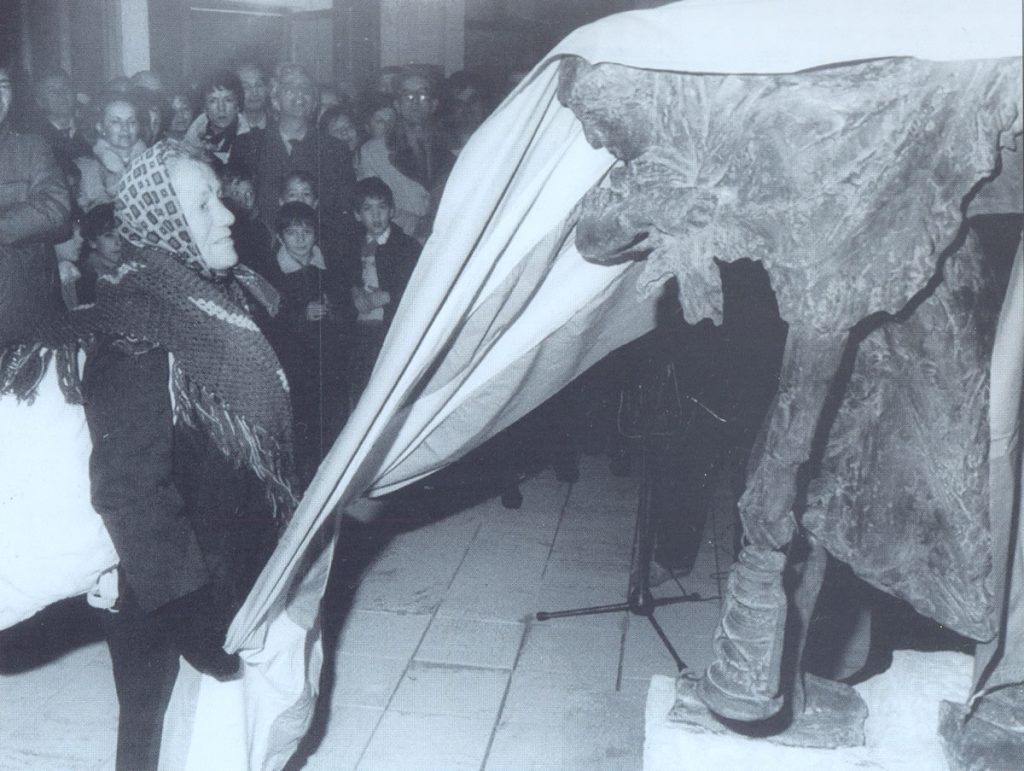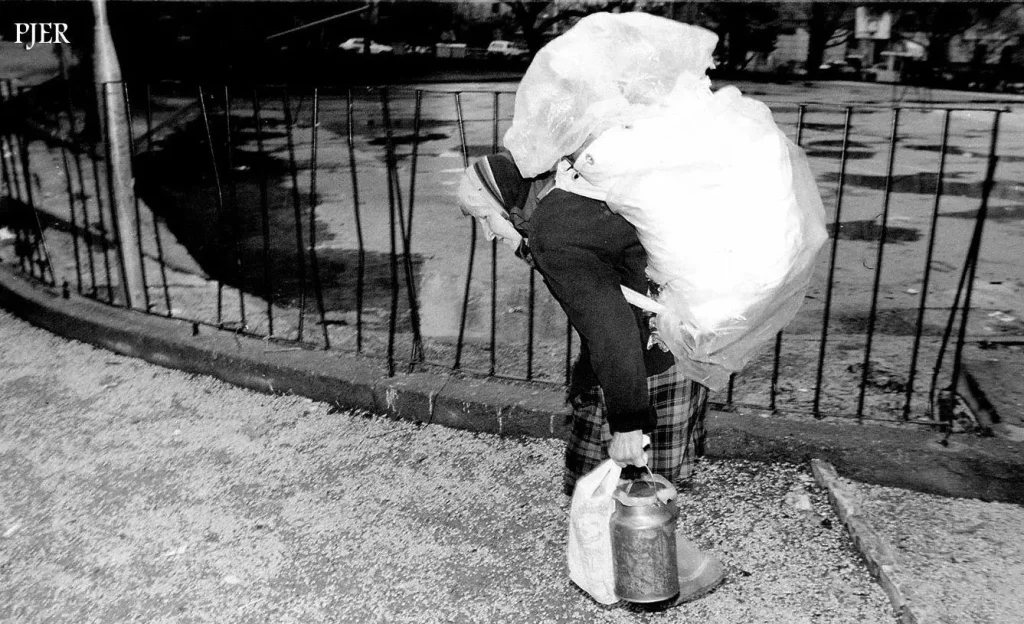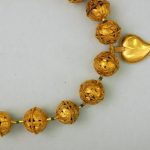January the 16th, 2024 – Nikolina Demark takes us to meet the Grobnik milkmaids, who walked the long and painstaking road between farm and table, far from the convenience we’ve become accustomed to.
Historically, the city of Rijeka has never been known for thriving agriculture. The urban area of Rijeka takes up a strip of land between the Kvarner gulf in the south and a mountainous hinterland in the north; the hustle and bustle of the industrial port city is not exactly an environment optimal for growing food and raising cattle.
And so, when it came to fresh produce, the populace of Rijeka used to depend on settlements in the wider area of this Northern Adriatic town. The Grobnik Field, as the name might indicate, was a particularly prolific land in this regard, with the crisp climate providing ideal conditions for livestock farming. Many people living in the Grobnik area, specifically in the municipalities of Grobnik, Cernik and Jelenje, raised cows and sold dairy products on the market in Rijeka.
Back in the day, before the two areas were connected with public transport, moving large quantities of dairy from Grobnik to Rijeka was far from an easy feat. It was an awe-inspiring undertaking, one that us lovers of convenience of the modern day can barely begin to fathom.
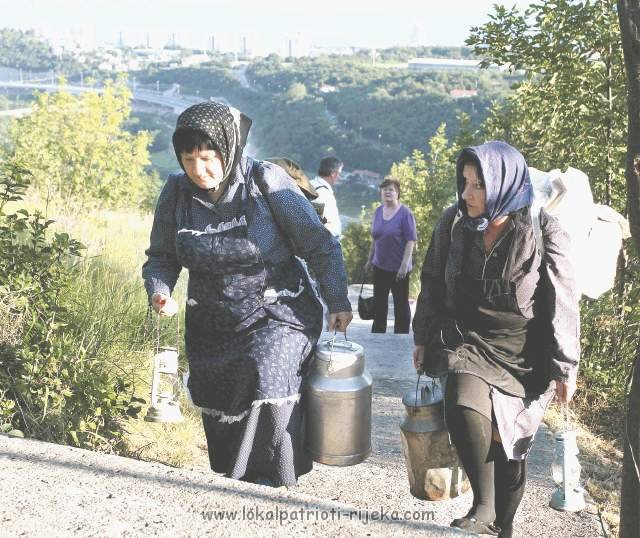
The women of Grobnik, known as the Grobnik milkmaids (mlikarice in the local dialect), would get up in the dead of night, stoke the fire, prepare morning coffee for the household, and milk the cows. The fresh milk was stored in tin containers called lata.
And then, before the crack of dawn, they’d travel 15-20 kilometres to Rijeka on foot, hunched under the weight of milk containers they carried on their backs, a petroleum lantern in their hand to light the way before sunrise. Every single morning, only to sell their products in Rijeka and walk the same distance back home in the afternoon.

The tin containers, transported in wicker baskets at first and later in special backpacks, typically held 2, 5, 8 or 10 litres of milk each; you’ll find different figures in various sources, but it’s safe to say that every milkmaid carried 20-30 litres of milk on average, with the added weight of containers and other dairy products such as cheese or butter.
Day in and day out, rain or shine, no matter the season. It was a superhuman effort, even more so when you add up all the time these women spent on the road, all the weight they carried, the distance they travelled over the course of their lifetime. It was common for the milkmaids to toil well into their old age; their weary faces and hunched backs speak of the toll of this hard work.
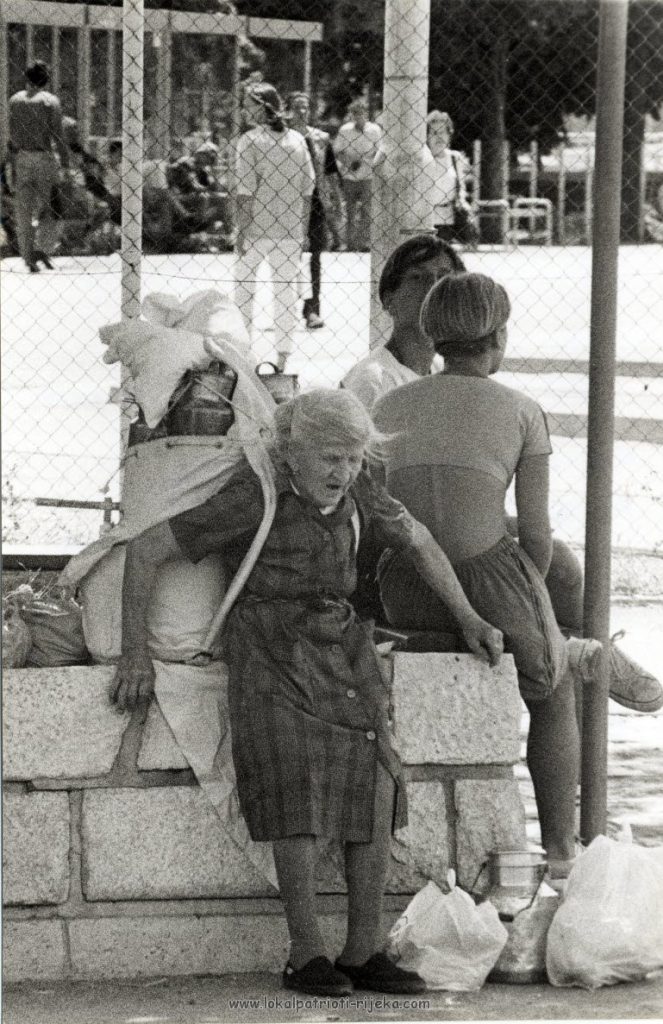
A lovely feature on Fiuman dedicated to Grobnik milkmaids pays homage to the (unnamed) author’s grandmother, who first started selling milk in Rijeka in 1914 when she was 16 years old. She made the trip every single day, save for a few days of rest after each of the four times she gave birth. Over 34 years, the woman carried over 238,000 litres of milk on her back and walked roughly the same mileage.
Another of the Grobnik milkmaids remembered by the local population, mentioned on Lokalpatrioti Rijeka, was Tonka from Cernik who started working even younger, at the age of 12. She made the trip every day until she turned 75; given that she sold an average of 20 litres of milk a day, Tonka carried a mind-boggling total of 432,000 litres in the 60 years she spent hard at work, having trekked a distance of some 390,000 kilometres – equal to some 10 trips around the equator. Tonka died aged 80, having received no pension or health insurance.

And then the local bus services were introduced, convenience stores started popping up around town, and so the last of the milkmaids made their final trips in the 1990s. A footpath connecting the villages of Hrastenica and Orehovica was named the Milkmaid’s Trail to honour the women who walked the road to Rijeka each morning.
There’s a small square in the Old Town in Rijeka dedicated to the Grobnik milkmaids, named Mljekarski trg (the Milk Square). A statue of a milkmaid adorns the square, a woman in bronze carrying a lantern in one hand and supporting the weight on her shoulders with the other. A similar sculpture is displayed in Dražice near Rijeka. Both are solemn reminders of the pain and hardships endured by these women only to make a humble living, all the while ensuring an entire city was supplied with essential foods.
